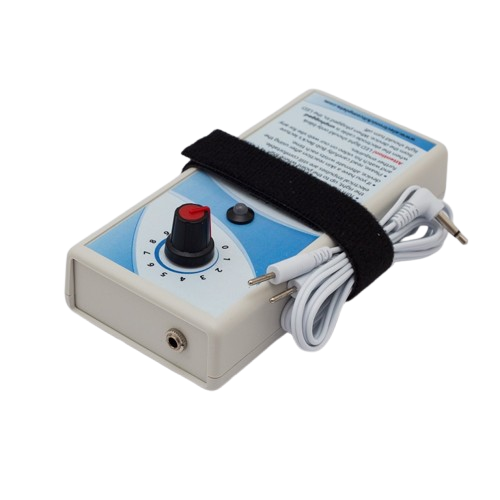Understanding Iodine: Its Role, Sources, and Considerations
Iodine is a trace element that plays a fundamental role in the human body, most notably associated with the function of the thyroid gland. It is known for being a key component in the production of thyroid hormones, which are involved in regulating various metabolic processes. While required only in small amounts, iodine is considered essential, and its deficiency or excess can potentially impact the body’s internal balance.
Where Iodine is Found
Iodine is naturally present in the environment, particularly in the ocean, which is why marine foods tend to be some of the richest dietary sources. Common iodine-containing foods include:
Seaweed (e.g., kelp, nori, wakame, dulse) – levels vary widely
Kelp (1g dried): up to 2000% DV (can vary significantly)
Nori (1 sheet): approximately 10–20% DV
Cod (85g or 3 oz, cooked): ~66 mcg → 44% DV
Shrimp (85g or 3 oz, cooked): ~35 mcg → 23% DV
Canned tuna (85g or 3 oz): ~17 mcg → 11% DV
Milk (1 cup/240ml): ~56 mcg → 37% DV
Yogurt (1 cup/245g, plain): ~75 mcg → 50% DV
Cheddar cheese (28g or 1 oz): ~12 mcg → 8% DV
Egg (1 large): ~24 mcg → 16% DV
Iodized salt (¼ teaspoon or ~1.5g): ~76 mcg → 51% DV
Note: Intake from salt depends on quantity used and whether it is iodized; many gourmet or sea salts are not iodized.
Bread (2 slices, commercially prepared with iodate dough conditioners): ~45 mcg → 30% DV
Potato (1 medium, baked with skin): ~40 mcg → 27% DV
Navy beans (½ cup, cooked): ~32 mcg → 21% DV
Strawberries (1 cup, sliced): ~13 mcg → 9% DV
Iodine content in plant foods can vary greatly depending on soil iodine levels. In some inland or mountainous regions, iodine in the soil is naturally low, making supplementation or fortified foods more important.
Daily Values and General Recommendations
The Daily Value (DV) for iodine is 150 micrograms (mcg) for adults and children aged 4 and older. Life stages may affect needs:
Pregnancy: ~220–250 mcg/day
Lactation: ~250–290 mcg/day
These values account for the increased requirement due to fetal and infant development needs.
Forms and Bioavailability
Iodine is generally well absorbed in the gastrointestinal tract, particularly in its iodide (I⁻) form. Forms commonly found in foods and supplements include:
Potassium iodide (KI) – common in iodized salt and most supplements; highly bioavailable
Sodium iodide – another supplement form
Potassium iodate (KIO₃) – used in food fortification in some countries
Organic iodine compounds – found in seaweeds; bioavailability may vary
While seaweed can be a potent natural source, some varieties (like kelp) may contain extremely high levels of iodine, and intake may need to be moderated due to the variability and potential for excess.
Testing Iodine Status
Testing for iodine status in individuals is not routine and can be complex. Common testing methods include:
Urinary Iodine Concentration (UIC) – a standard method for assessing recent intake; usually used in population-level studies rather than individuals
Thyroid Function Tests – including TSH, free T4, and T3; while not specific for iodine, they can reflect thyroid health
Thyroglobulin (Tg) – sometimes measured to assess iodine deficiency trends in populations
Iodine Patch or Loading Tests – sometimes mentioned in alternative health circles but not validated in mainstream clinical practice
Factors Affecting Iodine Absorption and Use
Several elements may impact iodine’s role in the body:
Goitrogens – naturally occurring substances in foods such as cabbage, kale, and soybeans that may interfere with iodine uptake in large amounts, especially when iodine intake is low
Selenium – involved in the metabolism of thyroid hormones; adequate selenium may support iodine’s functions (brazil nuts)
Environmental factors – exposure to perchlorate, fluoride, or bromide may inhibit iodine transport within the body
Some people notice shifts in energy, mood, temperature regulation, or skin texture that seem to correspond with iodine intake, though such observations are highly individual and not definitive.
Conclusion
Iodine is an essential micronutrient with a critical role in thyroid hormone synthesis and metabolic regulation. Though needed only in trace amounts, ensuring adequate iodine intake remains important, particularly in populations not consuming iodized salt or marine foods.
It is most commonly obtained from iodized salt, dairy, seafood, and seaweed. Potassium iodide is considered one of the most bioavailable forms. Iodine testing is not commonly done on individuals without symptoms, and assessment is typically done through a combination of dietary evaluation and thyroid-related biomarkers.
Maintaining a varied diet with awareness of iodine-rich foods can support overall balance and help reduce the likelihood of both deficiency and excess.
This material reflects personal research conducted in my spare time and is intended for informational purposes only. It does not constitute medical advice. Always consult a qualified healthcare provider.
